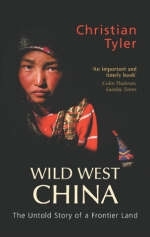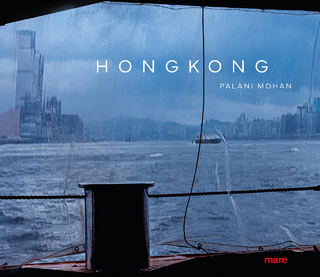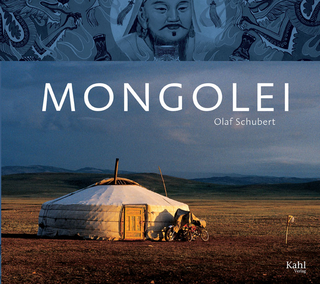
Wild West China
The Untold Story of a Frontier Land
Seiten
2004
John Murray Publishers Ltd (Verlag)
978-0-7195-6341-6 (ISBN)
John Murray Publishers Ltd (Verlag)
978-0-7195-6341-6 (ISBN)
- Titel ist leider vergriffen;
keine Neuauflage - Artikel merken
This is a portrait of Xinjiang, the remote wilderness in north-west China that has been closed to the world for half a century.
Known by the Chinese as a barbarian land, its rich past conjures up sand-buried cities and painted caves, while its present is punctuated by violence and warfare. And now it is returning to the light. The picture it presents is both fascinating and disturbing. The Uighurs, still farm the tranquil oases that ring the dreaded Taklamakan, the world's second largest sand desert, and the Kazakh and Kirghiz herdsmen still roam the mountains. The region's history, however, has been punctuated by violence, usually provoked by ambitious outsiders - nomad chieftains from the north, Muslim emirs from Central Asia, Russian generals or warlords from inner China. Only in the 1760s did the Chinese subdue the region, and even then their rule was repreatedly broken. China's colonization of Xinjiang has been late and difficult. The Communists have done most to develop it, as a penal colony, as a buffer against invasion, and as a supplier of raw materials and living space for an overpopulated country. But what China sees as its property, the Uighurs regards as theft by an alien occupier. Tension has led to violence and savage reprisals.
Known by the Chinese as a barbarian land, its rich past conjures up sand-buried cities and painted caves, while its present is punctuated by violence and warfare. And now it is returning to the light. The picture it presents is both fascinating and disturbing. The Uighurs, still farm the tranquil oases that ring the dreaded Taklamakan, the world's second largest sand desert, and the Kazakh and Kirghiz herdsmen still roam the mountains. The region's history, however, has been punctuated by violence, usually provoked by ambitious outsiders - nomad chieftains from the north, Muslim emirs from Central Asia, Russian generals or warlords from inner China. Only in the 1760s did the Chinese subdue the region, and even then their rule was repreatedly broken. China's colonization of Xinjiang has been late and difficult. The Communists have done most to develop it, as a penal colony, as a buffer against invasion, and as a supplier of raw materials and living space for an overpopulated country. But what China sees as its property, the Uighurs regards as theft by an alien occupier. Tension has led to violence and savage reprisals.
Christian Tyler is a former staff writer of the Financial Times of London. He has reported on industry, politics and international trade, and has travelled widely in China. He is married to the actress Ciaran Madden, has three children and a stepchild, and lives in Dorset.
| Erscheint lt. Verlag | 19.7.2004 |
|---|---|
| Sprache | englisch |
| Maße | 128 x 197 mm |
| Gewicht | 264 g |
| Themenwelt | Reisen ► Bildbände ► Asien |
| Geisteswissenschaften ► Geschichte ► Regional- / Ländergeschichte | |
| ISBN-10 | 0-7195-6341-0 / 0719563410 |
| ISBN-13 | 978-0-7195-6341-6 / 9780719563416 |
| Zustand | Neuware |
| Haben Sie eine Frage zum Produkt? |
Mehr entdecken
aus dem Bereich
aus dem Bereich
Forschungsexpeditionen zu den spektakulärsten Orten der Erde
Buch | Hardcover (2023)
Prestel (Verlag)
49,00 €


